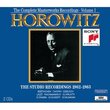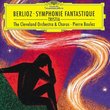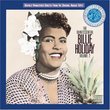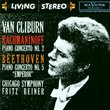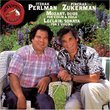| All Artists: Muzio Clementi, Johann Sebastian Bach, Domenico Scarlatti, Franz Joseph Haydn, Ludwig van Beethoven, Ferruccio Busoni, Vladimir Horowitz Title: Horowitz: A Baroque & Classical Recital Members Wishing: 0 Total Copies: 0 Label: Sony Original Release Date: 1/1/1994 Re-Release Date: 7/19/1994 Genre: Classical Styles: Forms & Genres, Sonatas, Historical Periods, Baroque (c.1600-1750), Classical (c.1770-1830), Modern, 20th, & 21st Century, Romantic (c.1820-1910) Number of Discs: 1 SwapaCD Credits: 1 UPC: 074645346625 |
Search - Muzio Clementi, Johann Sebastian Bach, Domenico Scarlatti :: Horowitz: A Baroque & Classical Recital
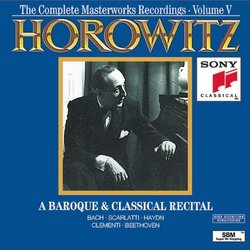 | Muzio Clementi, Johann Sebastian Bach, Domenico Scarlatti Horowitz: A Baroque & Classical Recital Genre: Classical
|
Larger Image |
CD DetailsSimilar CDsSimilarly Requested CDs |
CD ReviewsHorowitz Shines in Uncharacteristic Repertoire. Hank Drake | Cleveland, OH United States | 03/07/2003 (5 out of 5 stars) "Volume Five of Sony's Vladimir Horowitz reissue cobbles together the pianist's live and studio recordings of music from the Baroque and Classical era.From about 1950 on, Muzio Clementi's music was often featured on Horowitz's programs. Despite his advocacy, the pianist was unable to spark a Clementi-revival, as he did with Scarlatti and Scriabin. Yet, in Horowitz's hands, Clementi's music emerges as convincing and compelling. Horowitz plays the isolated sonata movements with characteristic clarity, technical control, and deft phrasing--hinting and Clementi's pre-echo of romanticism while honoring the era's Classical framework.When playing Bach, Horowitz generally relied on Ferruccio Busoni's inimitable transcriptions. Horowitz greatly admired--even worshiped--Busoni and considered his arrangements the ideal transference of Bach's music to the modern piano. This Chorale Prelude, recorded for a GoodYear Tire promotional album in 1969, is played with appropriate reverence. The performance demonstrates that Horowitz's ability to suspend one line above another, his control of part writing is every bit as astonishing as Glenn Gould's, and his tone is a lot more pleasing. The hallmarks of Horowitz's Scarlatti can be heard in the two Sonatas heard here: perfect transference of Scarlatti's sound world onto the modern piano; infinite grades of detachment and color; careful use of the sustaining pedal; flawless judgment of dynamics--from soft-softer-softest on the lower end, yet never pushing the piano too far into the forte range. Horowitz always seemed at home with Haydn's diverse pianistic textures and musical humor. The pianist plays the opening movement of the C-major Sonata at a much broader tempo than usual, phrasing it as if it were an opera aria. The second movement, one of Haydn's wittiest rondos, runs at a brisk tempo, with the sudden key-shifts and off-beat accents handled with Horowitz's usual aplomb.Horowitz was not congenial to late Beethoven, and felt that the piano works after Op. 81a were not meant for public performance--certainly not for today's mammoth concert halls. The pianist made an exception to his ban on Beethoven's late piano music for the Sonata in A major, Op. 101, performing it occasionally: in the 1930s, in 1967, 1980, and during his disastrous 1983 tour. In 1988, the intrepid Thomas Frost found several performances from 1967 recitals, spliced them together, and nervously presented the final product to Horowitz for approval. Much to Frost's surprise, Horowitz consented to release the Beethoven, along with several shorter works. This is pianistically one of the finest Op. 101s ever committed to disc (but his concert performances from 1980 were even more polished). For once, Beethoven's murky late piano writing is clear. The first movement sounds almost Wagnerian in its pathos. The dotted rhythms in the march are Schumannesque, the accents nearly brutal--no other performance on this work so clearly demonstrates Beethoven's influence on Schumann. The fugue is played with unprecedented clarity, despite a few quite inconsequential wrong notes--no pianist gets through this fugue unscathed. The sound varies, given the diverse recording locales, but remains acceptable." Delightful "Recital" Michael B. Richman | Portland, Maine USA | 11/22/2000 (5 out of 5 stars) "Volume Five of Vladimir Horowitz's "Complete Masterworks Recordings" is a delightful collection of baroque and classical gems. But don't let the title fool you, this is not a single concert recital but instead an assortment of studio and live recordings ranging from 1963 through 1972. The other thing to be aware of with this disc is a majority of this material is also included on "Discovered Treasures" -- don't get both as I did. Anyway, back to the title at hand. The Clememti Sonatas are morsels of ear candy while the Bach-Busoni is achingly beautiful (and definitely superior to Evgeny Kissin's recording). Two more Scarlatti Sonatas (K319 & K260) are played with the passion that only Horowitz can bring to this composer's works, and then he goes on to perfectly capture the delicate grace of the first movement of Haydn's C-major Sonata and the forcefulness of its second movement. The final selection on this CD is a 1967 live recording of Beethoven's 28th Piano Sonata. While Horowitz recorded Beethoven Sonatas from the early and middle periods throughout his career, this is one of the few recordings he made of a late Sonata. Unfortunately, the solemn first movement is marred by numerous coughs from the Queens College audience, but Horowitz's playing is so masterful that you quickly forget about it (although I would not make this your definitive version -- check out Pollini's recording as well). Overall, "A Baroque and Classical Rectal" is as enjoyable a volume as any of the nine Horowitz "Masterworks" titles."
|

 Track Listings (12) - Disc #1
Track Listings (12) - Disc #1